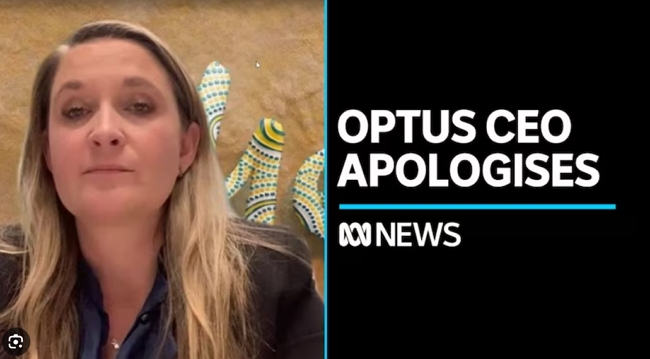
I was reading this article here on how badly Optus handled its outage, and while reading it, I realised that there are many lessons here for all of us. As business owners, we strive to provide excellent service to our customers daily. But in life, things sometimes go wrong. Occasionally, things go badly south. I have had vital deliveries go missing; telephones knocked out, which knocked out all our support; water in the building, which meant everyone had to go home, etc. etc. etc. Then what matters most is how we respond during these difficult situations.
Here is my take on what happened.
Now, one of Australia's largest telecommunications companies, Optus, experienced a nationwide service outage that left millions of customers without mobile data, text messages, and phone calls. Most of the problems were fixed by the end of the day, but as of this morning, some of my clients were still reporting problems.
Let us review Optus's outage handling, which provides valuable lessons for us in crisis management.
Quick Response is Crucial
When disaster strikes, a quick public response is vital. People knew that things were wrong. I was alerted about 5 AM. I soon learnt that it was not just us, but I needed help to get details from Optus on what was happening. I was upset about what would happen to our support without phones. I can tell you that a delayed response fuels outrage. Then, when they did announce it, it was a vague message. They should have immediately addressed any significant incident on social media and their website. Even a short but sincere message goes a long way, even if details need to be clarified. What you need to do then is to give customers a tentative score and assure customers that you're working urgently to resolve the problem.
Regular Communication Builds Trust
Regular updates are essential, even if you have limited new information to share. For example, when a delivery goes missing, we try to find the score and then call our clients to apologise for the inconvenience. We then keep in touch with them regularly after that. I am sure you do, too.
Empathy is Everything
Optus' CEO came across as distant and uncaring in her messaging. If the reports are correct, she lost all communications except for WhatsApp; if so, her reports eroded trust in her. We need to be empathetic in communications, then. Be transparent about impacts and acknowledge feelings of anxiety or inconvenience. Even if it is unimportant to you, it is important to them. I can remember my Mum being so upset when some flowers were going to be delivered late, then the florist was very good and assured her that they were committed to resolving issues promptly. They spoke in simple, human terms.
Get Ahead of the Narrative
With no substantive updates, we saw speculation and misinformation quickly spread online about the Optus outage. Some people will always think the worst. It would be best if you stopped them by being proactive with information.
Behind-the-Scenes Access
I love her suggestion that Optus could have generated goodwill by providing behind-the-scenes footage of their engineers working to restore networks. Introduce information that your staff is working hard to assist. This puts a human face on your recovery efforts.
Learn from Past Crises
If you think about it, Optus should have had a crisis plan in place after Optus's significant data breaches last year. No worries as the saying saids

We need to learn from what went wrong.
Accountability Starts at the Top
The Optus CEO's lack of leadership during the outage sparked heavy criticism. In a crisis, owners/senior management must be visible. After all, they are the decision-makers. If you do not care, what does it say? It would be best to position yourself as commanding the situation with dedication and accountability.
Tone Deaf Actions Undermine Trust
When millions were struggling without phones, Optus' CEO provoked outrage by conducting a photo shoot in her luxury mansion. Perception is reality - avoid activities that seem insensitive given the circumstances. In a crisis, it is the time for selfless customer service, not self-promotion.
Ongoing Reassurance is Key
Your post-incident messaging should reassure customers of your business resilience and commitment to delivering exceptional service. Responsible crisis management demonstrates your determination to preserve their trust for the long term.
Major crises will happen despite best efforts. But you can minimise the business damage and deepen customer loyalty through rapid response, transparency, accountability and compassion. Use the hard lessons from Optus as a blueprint to refine your incident readiness. Your customers will appreciate your dedication to continuity and care.
Summary: Key Takeaways for Retailers
- Immediately acknowledge major issues
- Provide regular updates, even without new info
- Adopt an empathetic, human tone
- Get ahead of online narratives
- Give behind-the-scenes access
- Learn from past incidents
- Show strong leadership
- Avoid insensitive actions
- Reassure customers post-crisis
By applying these crisis management practices, your business can demonstrate resilience, accountability and customer dedication. Be prepared to act decisively when unforeseen problems occur. Your efforts to maintain transparency and care will go a long way with your loyal customers.


